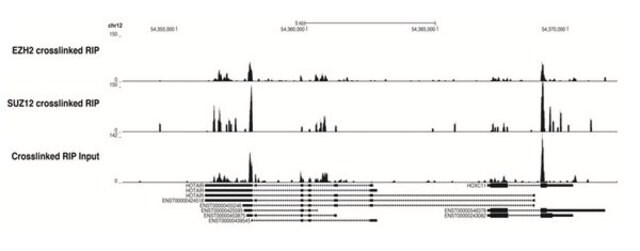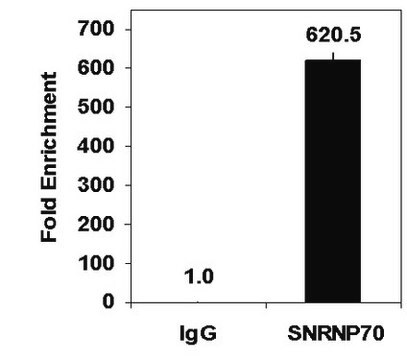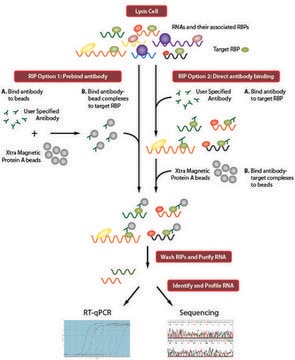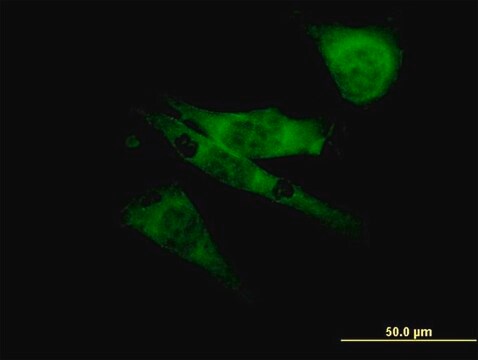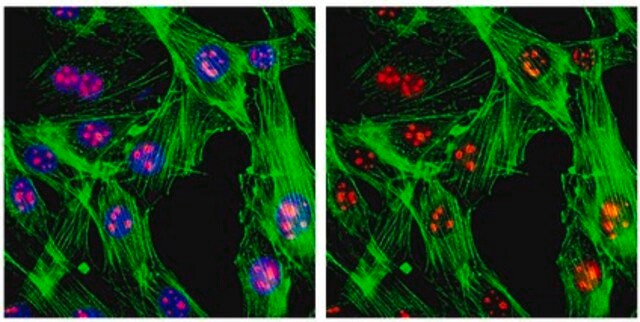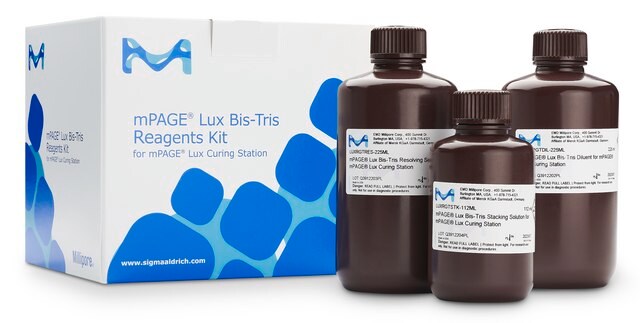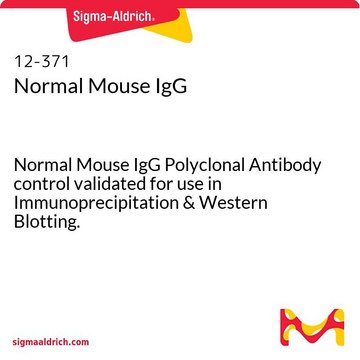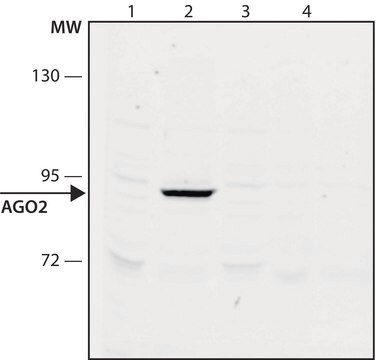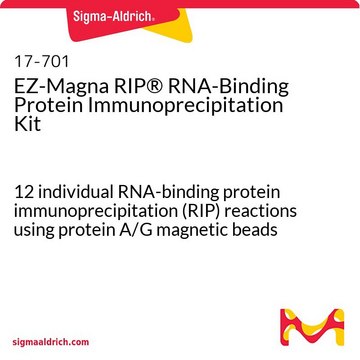SAB4200274
Anti-EIF2C2/Ago2 antibody produced in rabbit
~1.0 mg/mL, affinity isolated antibody
Sinonimo/i:
Anti-Eukaryotic translation initiation factor 2C, 2, Anti-I2C2, Argonaute-2, Anti-PAZ Piwi domain protein, Anti-Slicer protein
About This Item
Prodotti consigliati
Origine biologica
rabbit
Coniugato
unconjugated
Forma dell’anticorpo
affinity isolated antibody
Tipo di anticorpo
primary antibodies
Clone
polyclonal
Stato
buffered aqueous solution
PM
antigen ~97 kDa
Reattività contro le specie
human
Concentrazione
~1.0 mg/mL
tecniche
western blot: 1-2 μg/mL using lysates of HEK-293T cells over expressing human EIF2C2/Ago2
Condizioni di spedizione
dry ice
Temperatura di conservazione
−20°C
modifica post-traduzionali bersaglio
unmodified
Informazioni sul gene
human ... EIF2C2(27161)
mouse ... Eif2c2(239528)
rat ... Eif2c2(59117)
Categorie correlate
Descrizione generale
Immunogeno
Applicazioni
Western Blotting (1 paper)
Azioni biochim/fisiol
Stato fisico
Esclusione di responsabilità
Non trovi il prodotto giusto?
Prova il nostro Motore di ricerca dei prodotti.
Raccomandato
Codice della classe di stoccaggio
10 - Combustible liquids
Punto d’infiammabilità (°F)
Not applicable
Punto d’infiammabilità (°C)
Not applicable
Scegli una delle versioni più recenti:
Certificati d'analisi (COA)
Non trovi la versione di tuo interesse?
Se hai bisogno di una versione specifica, puoi cercare il certificato tramite il numero di lotto.
Possiedi già questo prodotto?
I documenti relativi ai prodotti acquistati recentemente sono disponibili nell’Archivio dei documenti.
Il team dei nostri ricercatori vanta grande esperienza in tutte le aree della ricerca quali Life Science, scienza dei materiali, sintesi chimica, cromatografia, discipline analitiche, ecc..
Contatta l'Assistenza Tecnica.
